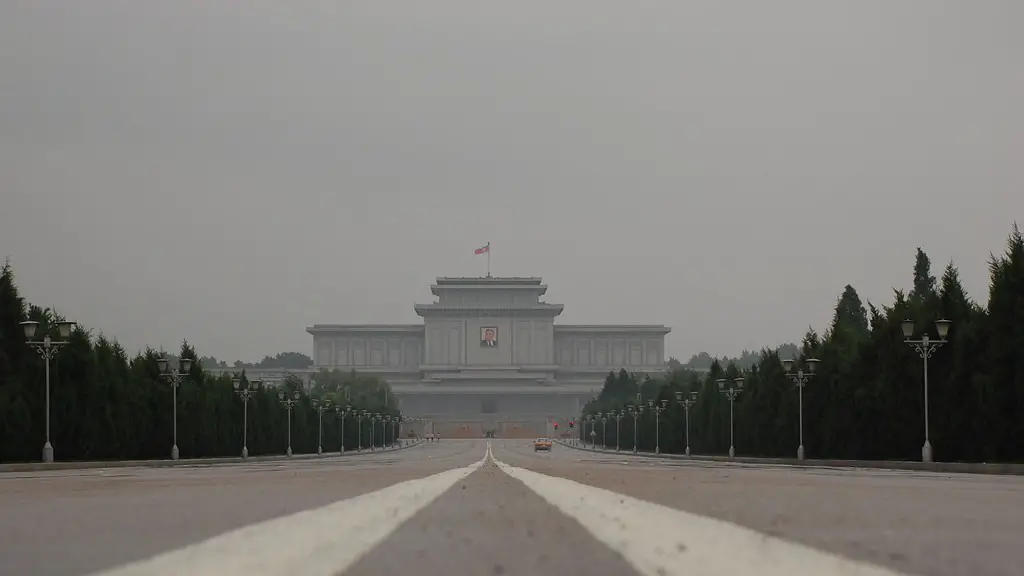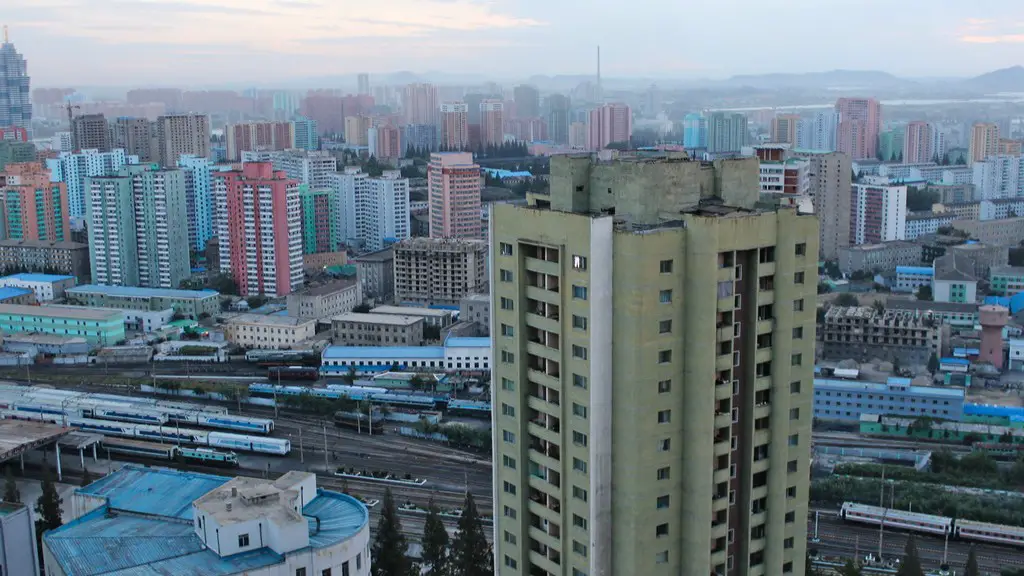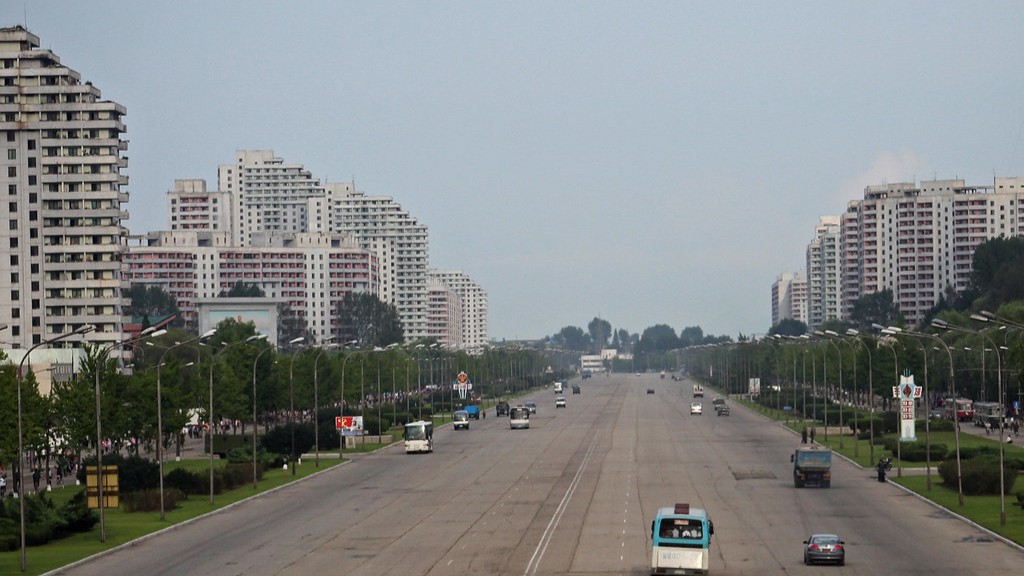In the wake of North Korea’s ongoing nuclear weapons development, the UN Security Council has imposed significantly tougher sanctions than before in an attempt to rein in the isolated nation’s rogue activities. While the level of sanctions imposed has been widely disputed, the new sanctions do represent a dramatic shift in approach to the issue. unprecedented.
Recently, the United Nations Security Council voted unanimously to impose the most comprehensive sanctions ever to be placed on North Korea. Although the sanctions do not ban all exports, they do cap the amount of coal and other key minerals that can be exported to other countries. In addition, the sanctions also ban any joint ventures between North Korean entities and those from other countries. Financial institutions have been ordered to sever ties with North Korean entities, and international travel for North Koreans associated with those entities is now severely restricted.
The new sanctions target North Korea’s already heavily restricted access to the international financial system, as well as its ability to export coal and other minerals, which represents a major source of income for the nation. While the sanctions are not as far reaching as some had hoped, they are a significant step towards curtailing North Korea’s nuclear activity.
The new sanctions have gained wide support, including from the United States, China and Russia. Even though they are perceived to be a strong signal to Kim Jong Un, the North Korean leader has yet to comment publicly on the matter. There have been widespread reports of hardship amongst the North Korean people, who are already struggling economically.
It is difficult to tell how effective the sanctions will be as they are largely targeted at cutting off the North Korean regime’s access to the international financial system and choking off much-needed revenue streams. Nonetheless, the sanctions serve as a clear signal to Kim Jong Un that the international community is not willing to tolerate further nuclear sabre-rattling.
Experts believe that the true impact of the sanctions on the North Korean economy will become clearer in the coming months and years. For now, though, it is important to note that these sanctions have been imposed primarily as a means to put diplomatic pressure on the North Korean regime and to send a clear message that the international community is no longer willing to tolerate the nation’s nuclear activities.
Effects on China
The sanctions imposed on North Korea are likely to have a significant impact on neighbouring China, which is North Korea’s key patron and source of trade. Reports suggest that China is undeterred by the sanctions, and that it may even leverage the situation to further its own agenda in the region. China’s priority, it appears, is the stability of the Korean peninsula, and it is likely to continue to exercise its influence through a range of measures to ensure this stability.
Indeed, that a united China is taking a leadership role in the international community’s efforts to contain North Korea is a sign of their commitment to the stability of the region. The Chinese government has strongly denounced North Korea’s nuclear activities, and its willingness to cooperate with the international community and to conform to international norms is likely to be a crucial factor in efforts to rein in the nation’s rogue activities.
However, the sanctions imposed by the UN Security Council may not be enough to change the behavior of North Korea. The nation already faces a severe economic crisis, and it is possible that the new sanctions will only serve to worsen the situation. In addition, there are concerns that the sanctions may push North Korea towards further militarization as a means of deterrence. If these fears come to fruition, it could spell trouble for global security and stability.
Consequences for the US
The United States is the chief architect of the new sanctions, and its hope is that the sanctions will prompt North Korea to abandon its nuclear activities and come to the negotiating table. However, while the new sanctions will certainly complicate matters, it is unclear how effective they will be in terms of exacting a change in policy from the North Korean regime.
The United States is also acutely aware of the risks associated with escalating tensions in the region. US President Donald Trump has stated that the US is willing to pursue a diplomatic solution, but he has made it clear that the US will not hesitate to act militarily if it deems it necessary. As such, the US and its allies will be closely monitoring North Korea’s response to the sanctions, and weighing their options in the event that the North Korean regime continues to pursue its nuclear ambitions.
The US and the rest of the international community have long been vocal in their opposition to North Korean nuclear activities, and the recent sanctions are an indication that they are serious about curtailing them. However, the effectiveness of the new sanctions remains to be seen.
Western Powers’ Influence
Western powers, notably the United States, France, and the United Kingdom, have shown strong leadership in putting together the new sanctions and in sending a strong message to North Korea. These nations have a long history of working together to address global challenges. In the case of North Korea, the US and its partners have worked closely together to ensure that the sanctions are comprehensive and effective.
The US and its allies have urged other nations to join them in supporting the new sanctions, and it appears that the majority of countries in the international community are adhering to the sanctions. However, there remain concerns that the international community’s efforts will not be enough to change North Korea’s behavior in the long run.
Sanctions are just one of the tools in the international community’s diplomatic toolkit, and they are unlikely to achieve the desired results without other diplomatic measures being taken as well. Any meaningful progress on the issue will require a concerted diplomatic effort on the part of the international community, and it remains to be seen if the US and its allies can pull it off.
Implications for International Law
The new sanctions on North Korea have far reaching implications for the international community, particularly with regards to international law. The sanctions are seen as a sharp rebuke of North Korea for its refusal to abide by international obligations, and as such, they represent a significant challenge to the legitimacy of international law.
The sanctions have implications for the entire international community, particularly in the area of peace and security; they serve to remind the international community of its obligations to follow international law and the implications of not abiding by it. Additionally, they serve to reject the notion that power or rogue behavior can be tolerated in the international system. In this way, the new sanctions on North Korea represent a significant shift in international law.
It is uncertain, however, how effective these sanctions will prove to be in changing North Korea’s behavior. The sanctions do serve to send a strong message to the nation, but there is no guarantee that they will be effective in curtailing the country’s nuclear ambitions. In the end, it is likely that the real impact of the sanctions will become clear in the coming months and years.
Continued Diplomacy
Ultimately, the goal of the new sanctions is to spur the North Korean regime to come to the negotiating table. In order for the sanctions to be successful, it is essential that the diplomatic process is pursued in parallel. Indeed, the international community must use all available diplomatic channels in order to encourage the North Koreans to abandon their nuclear weapons ambitions.
The US and its allies have been vocal in their condemnation of North Korea’s activities, and it appears that a majority of the international community has rallied behind the new sanctions. However, it is important to recognize that the sanctions are only the first step towards diplomacy, and that meaningful progress towards a peaceful resolution of the situation will require sustained diplomatic efforts on the part of the international community.
Ultimately, the success or failure of the new sanctions will depend largely on the willingness of the North Korean regime to accept the diplomatic entreaties of the international community. It remains to be seen how effective the sanctions are in changing Kim Jong Un’s calculus, but it is essential that the diplomatic effort continues in parallel in order to ensure that the North Korean crisis is peacefully resolved.
North Korean People’s Impact
The new sanctions are likely to have a significant impact on the North Korean people. Reports have suggested that the country is already facing an economic crisis, and it is likely that the new sanctions will only worsen the situation. In addition, the restrictions imposed on international travel for North Koreans associated with sanctioned entities will further compound the issue.
While the international community is understandably focused on the geopolitical implications of the new sanctions, it is important to not forget the plight of the North Korean people. It is essential that, in the quest to contain North Korea’s nuclear ambitions, the international community pays attention to the human costs of the sanctions. Furthermore, it is important to remember that the North Korean people do not bear any responsibility for the actions taken by their government.
It is clear that the sanctions will have a profound impact on the North Korean people, but it is impossible to predict exactly how deep and lasting this impact will be. It will take some time for the full consequences of the sanctions to be felt, and it is likely that it will be difficult to measure the impact in the short term. Nonetheless, it is important to pay attention to the plight of the North Korean people, and to ensure that their suffering is not forgotten in the midst of international political maneuvering.
Humanitarian Aid
Despite the United Nations’ sanctions on North Korea, it is important to note that there are certain measures that can still be taken in order to provide the country with much-needed humanitarian aid. Numerous aid organizations, such as the International Red Cross and UNICEF, are still able to provide assistance to the North Korean people, despite the sanctions.
International aid organizations note that there is still much work to be done in order to alleviate the suffering of the North Korean people. As such, it is essential that the international community continues to provide assistance to the nation and its people, in whatever form possible.
Furthermore, the US and its allies have indicated that they are willing to potentially waive the sanctions in certain cases in order to provide humanitarian assistance to those in need. This is seen as an important gesture of good will in order to alleviate the suffering of the North Korean people and to demonstrate the humanitarian nature of the international community’s actions.
Ultimately, the goal of the international community is to work towards a peaceful resolution of the North Korean crisis. The new sanctions are seen as a step in the right direction, but it is essential to recognize that this is only the first step and that success will require a sustained diplomatic effort. In the meantime, it is essential that the international community provides whatever assistance it can to the North Korean people in order to alleviate their suffering.





